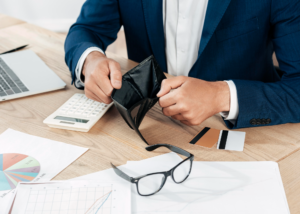
What happens when you file for Bankruptcy in Canada?
Bankruptcy is an alternative many people turn to when overwhelmed with debt and feel like there are no other options available.
Before you consider bankruptcy, it is important to know that there may be other ways for you to manage your debt. Your options may include debt consolidation, debt management, or a consumer proposal.
The various debt management options have different consequences on your finances. It is essential to consider all your options before deciding that bankruptcy is the right solution for you. This debt calculator can be a starting point to evaluate other debt management solutions.
If you have considered all your options and are looking to file for bankruptcy, here is a guide to answer your questions about bankruptcy:
- What bankruptcy is
- What you can expect after filing for bankruptcy
- What happens after bankruptcy is discharged
What is bankruptcy?
- Bankruptcy is a legal proceeding to help you get out of debt.
- If you are overwhelmed with your debt, you may be considering bankruptcy when no other debt solutions have worked for you.
- The goal of bankruptcy is to eliminate your unsecured debts so that you can rebuild your finances in the future.
- The process of bankruptcy is a formal, legal process, to allow a debtor to be legally discharged of their debt.
- The bankruptcy proceedings start when you file for bankruptcy.
Once you file for bankruptcy, you surrender any assets that are not exempt under provincial and federal laws. These assets can be sold off by the administrators of the bankruptcy. The proceeds of sale from the assets will be used to pay back the creditors.

What happens when you claim personal bankruptcy in Canada?
Once you declare bankruptcy, your creditors are notified, and you stop making payments on any unsecured debts.
Creditors stop calling.
Once you file for bankruptcy, your creditors must legally stop contacting you to collect their debt or take any legal action against you.
Bankruptcy stops most wage garnishments.
When you declare bankruptcy, your employer, the court, and the creditor will be notified with a stay of proceedings and the wage garnishment will stop.
These can be a welcome relief for anyone who is struggling with their debt.
What do I lose if I declare bankruptcy?
Many of your assets are protected under federal and provincial laws, within certain limits.
Typically, you will get to keep your house, car, furniture, and other personal effects up to specific monetary limits. Your RRSP is also protected from bankruptcy.
Some of your assets may be sold in bankruptcy proceedings to pay off your debt to creditors.
In Canada, each province has a list of exempt assets that you can continue to own when you declare bankruptcy. For other assets, there is a prescribed maximum dollar amount that you can keep when you declare bankruptcy.
For example, in Ontario, you can keep clothing and personal effects up to a value of $5,650 and household furniture and appliances up to a value of $13,150.
What happens during bankruptcy?
Bankruptcy is a legal process that continues for several months. During this time, you must report your income and expenses.
Surplus income payments
If your earnings are higher than what you need to maintain a reasonable standard of living, you may be required to make additional monthly payments towards the debt.
This amount can change during bankruptcy if your earnings change.
You will attend financial counselling sessions.
While you are in bankruptcy, you will need to attend at least two financial counselling sessions with a certified credit counsellor.
These sessions will help you navigate your current situation, help you get back up on your feet, and manage your finances better once you are out of bankruptcy.
How long does bankruptcy last?
For a first-time bankruptcy proceeding, bankruptcy can be discharged in nine months. But it can also last as long as 21 months with surplus income.
This process can take 2-3 years for subsequent bankruptcy proceedings.

What happens after bankruptcy discharge in Canada?
A bankruptcy discharge means you are now released from your bankruptcy obligations, and your debts are eliminated.
Debts are gone.
Once all of your bankruptcy proceedings have been completed, your debts will be legally eliminated.
Bankruptcy covers many debts. But there are certain exemptions such as spousal support payments, any court-mandated fines or penalties, as well as student loans if they are less than seven years.
While certain debts do survive bankruptcy, for the most part, you will be debt-free and can focus on building your financial future.
Credit score and Bankruptcy
Bankruptcy can affect your credit score for several years, even after the bankruptcy is discharged.
Your bankruptcy status will remain on your credit report for about six years after the date of discharge.
Once your bankruptcy is discharged and your debts are eliminated, you have a clear target for rebuilding your credit.
What are my options if I don’t file for bankruptcy?
Declaring bankruptcy for many is the last resort to managing their debt.
While the bankruptcy process can help you reset your financial future, it is not the only option at your disposal to manage your debt.
A debt expert can help you assess other options, such as debt consolidation, debt management, or a consumer proposal.
If you want to explore your debt management options, debt expert at EmpireOne can help. You can start to focus on your financial future, learn how to handle your finances, and focus on your new financial life. Contact us for a free consultation.





